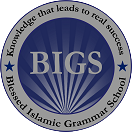The Montessori curriculum is an educational approach developed by Dr. Maria Montessori, an Italian physician, and educator, in the early 20th century. The Montessori method focuses on child-centered learning, emphasizing the development of the whole child—physically, socially, emotionally, and cognitively. It is based on the belief that children learn best when they are allowed to explore and discover their environment at their own pace.
The Montessori curriculum is divided into several key areas:
Practical life: Activities that focus on daily living skills, such as self-care, cleaning, and food preparation, fostering independence, and self-confidence.
Sensorial: Exercises that engage the child’s senses to develop their perception, observation, and problem-solving skills.
Language: Activities that promote reading, writing, listening, and speaking skills through phonetics, storytelling, and vocabulary development.
Mathematics: Hands-on materials that help children understand mathematical concepts, such as numbers, geometry, and operations, through exploration and manipulation.
Cultural studies: Lessons that introduce children to the world around them, including geography, history, science, and art.
Key principles of the Montessori curriculum include:
- Individualized learning: The Montessori approach tailors learning experiences to each child’s unique needs, interests, and abilities. Children are given the freedom to choose activities and work at their own pace, fostering independence and self-motivation.
- Prepared environment: Montessori classrooms are designed to be inviting, well-organized, and rich with hands-on materials. The environment encourages exploration, discovery, and independence, with a focus on real-world, practical experiences.
- Mixed-age classrooms: Montessori schools typically group children in mixed-age classrooms, usually spanning three years. This setup allows for social interaction, peer learning, and opportunities for older children to mentor younger ones.
- Learning through exploration: The Montessori curriculum encourages children to learn by engaging with materials and activities, allowing them to explore, experiment, and make discoveries on their own.
- Focus on the whole child: Montessori education emphasizes the development of the whole child, nurturing their physical, social, emotional, and cognitive growth. Activities are designed to promote coordination, concentration, self-discipline, and a sense of order.
- Teacher as a guide: Montessori teachers are trained to observe and support each child’s learning journey, acting as a guide rather than a traditional instructor. They provide individualized support, introduce new materials, and facilitate social interactions.
The Montessori curriculum at BIGS is designed to foster a lifelong love of learning, nurturing children’s natural curiosity and is embedded with Islamic ethics and values. This wholesome curriculum helps them develop essential skills for success in throughout their later life.
